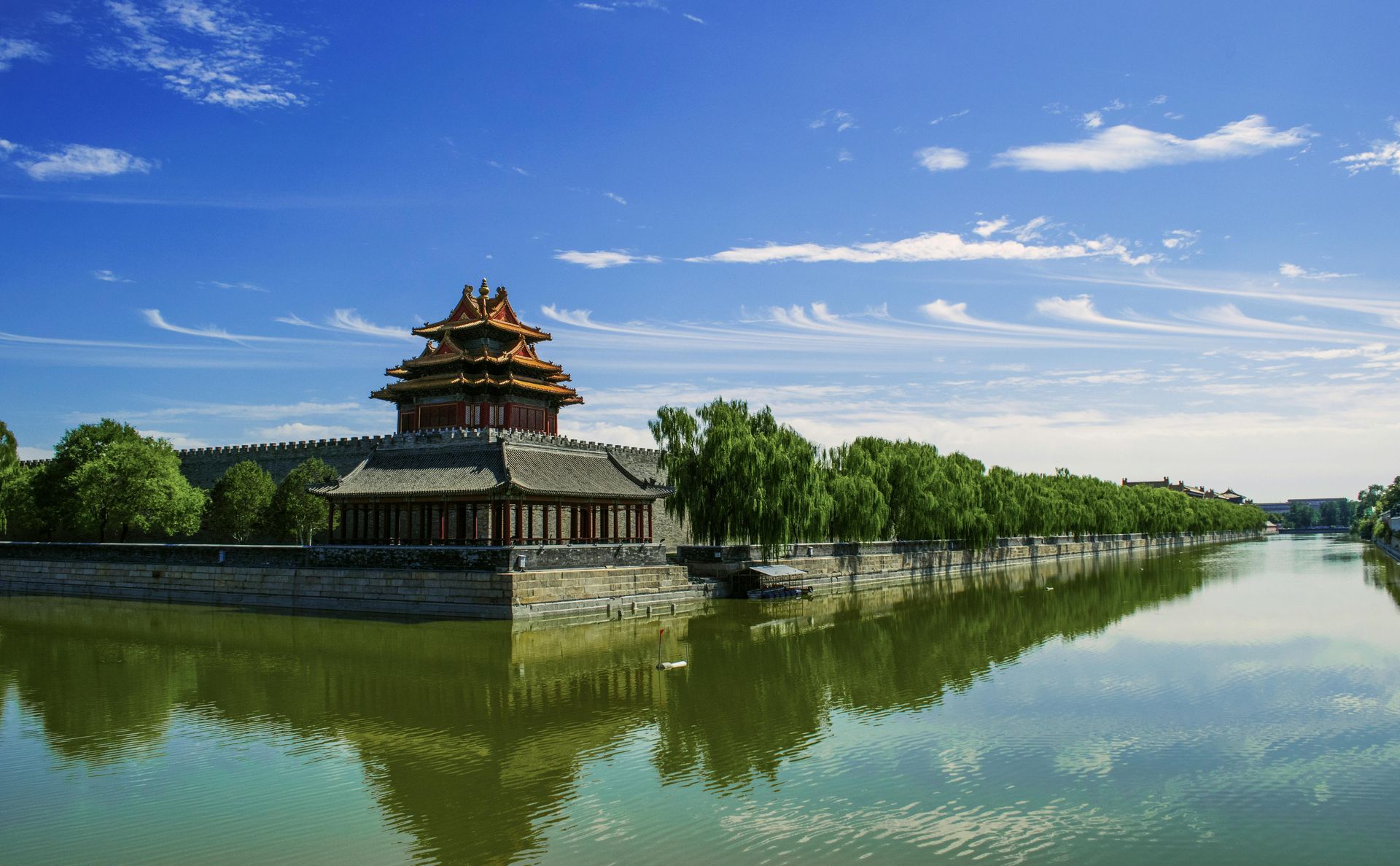Dominion, Part 3: The Death of Paganism and the Rise of Christian Culture
The Victory of Christian Culture
I have said previously argued that Dominion, by Tom Holland, is one of the most important books of our time. Today we pick up in chapter six,, entitled, Heaven, A.D. 492.
Holland takes us into the expansion of the dominion of Jesus Christ in the early Middle Ages. He describes the decline and death of paganism, a left over from the Roman past. The Christians saw it as a victory over Satan. Holland turns his pen to Gregory the Great, the seventh-century pope. In this context he chronicles a radical new conception of time, one of the most important developments in human history. The ancients had believed history moved in cycles but Christians had a linear view. History was a steady march onward and upward to the final judgment and the coming of Christ and His millennial reign. This introduces into culture for the first time the powerful idea of progress. Even though Gregory looked out over the wreckage of what had once been the mighty Roman Empire he still had hope as he looked to the future. Augustine wrote that those who lacked the Christian understanding of history, “were doomed to wander in a circuitous maze, finding neither entrance nor exit.”
Holland moves from Rome out to the very edge of the old Roman Empire to a savage, brutal barbarian people--the Irish. Unlike any religion in history, Christianity has no permanent geographical center. What you might call the center of the Christian faith moves around. For a very short time it was Jerusalem, then the eastern Mediterranean, then Rome, then northern Europe, then North America, and now you could argue it is Africa or any number of places. The early medieval period is an example of this. Ireland was as far from the center of ancient culture as Jupiter. Holland introduces us to one of the greatest missionaries and influential people the world has ever known—Patrick. The Irish monasteries he established raised up some of the most rigorous Christians that have ever existed and they gave their attention to the lands east and south—what is modern day England, France, Germany, and even Italy. Here we find a product of Patrick’s legacy, a missionary named Columbanus, who also was enormously influential. Holland says of Columbanus, “Schooled in the ferociously exacting monasticism of his native land, Columbanus appeared to the Franks a figure of awesome and even terrifying holiness.” The impact of Irish Monks is incalculable. Thomas Cahill is a respected historian. His famous book, “How the Irish Saved Western Civilization” should really have been titled “How Irish Monks Saved Western Civilization.” Or better yet, how St. Patrick saved Western Civilization. Without men like Patrick and Columbanus the modern world as we know it would not exist.
Jesus Christ enters the hearts of men and women in every generation and uses them in the ongoing transformation of life on earth. In future chapters of Dominion we see this power continue to unfold.
Chapter 7: Exodus; A.D. 632, Carthage
We move now into the world of late antiquity—a phrase coined by historian Peter Brown. There arose the greatest threat Christian kingdoms would ever face—Islam. “Provinces of the battle-wearied Roman and Persian empires, like over-cooked meat slipping off the bone, melted into the grasp of Arab warbands.” When captured by the Muslim horde Christians and Jews were to pay a tax and submit to their Arab conquerors. The tax was a sign of their inferiority.
The Muslims repudiated much of Christian teaching including and especially the idea that Jesus had been crucified. The Muslims said—and say to this day—the suffering ascribed to Jesus was an error made by the biblical writers. Jesus had not so died. The Muslims also reputed the Pauline teaching that God had written His commandments on the heart. This idea made Christianity irrevocably different from Islam as well as Judaism.
While Christianity was being driven from the Middle East and north Africa forever, it was expanding in northern Europe and Holland devotes a section to the growth of Christianity in England and the remarkable career of a man known to history as the Venerable Bede. Bede made many contributions to Christianity, none greater than his redefinition of time. “There was only one fixed point amid the great sweep of the eons,” so he fixed the hinge of history on the Incarnation. It was a “rendering of time itself as properly Christian.”
Then comes a turning point in history, the Battle of Tours, or Poitiers, in 732 in what is modern France. The Muslims had been advancing all across southern Europe but that advance ended at the hands of the king of the Franks, Charles “the Hammer.” “More had hung in the balance at Poitiers than the Franks could possibly have realised.” The Muslims had decisively repudiated the conviction that God’s true law was written on the hearts of men. Holland says that at stake at Poitiers was nothing less than the legacy of St. Paul. The Franks won the battle and ended the Muslim advance. But this was the end of the ancient world.
Chapter 8: Conversion, A.D. 754, Frisia
This chapter begins a new section in Dominion. The first seven chapters Holland labeled “Antiquity.” This section he labels, “Christendom.”
One of the more astonishing developments—to me anyway--was the contempt Roman Christians in the fourth century had to missions. Augustine took the Great Commission seriously but hardly any of his contemporaries did. They “regarded Christianity as far too precious to be shared with the savages who lurked beyond the limits of Roman power.” Many in the modern American church oppose missions but they were not the first do so. The Christians in the Roman Empire in 400 A.D. had no interest in reaching the lost beyond their borders.
What has come to be known as the “barbarian conversion” did not originate with civilized Roman Christians of the Mediterranean. It came roaring out of the far reaches of the former empire, from Ireland and England. Their inhabitants did not see their fellow barbarians as repulsive creatures to be avoided but as creations of God living in darkness and in desperate need of light. And light they provided.
Holland gives the example of Boniface, a West Saxon, a British tribe only recently brought to Christ. “He suffered no anxiety in contemplating the world turned upside down.”
We turn next to Charlemagne and the program of empire building Christian style. “As a program for bringing and entire pagan people to Christ, it was as savage as none had ever been before.” Charlemagne believed in forcing Christian culture on to conquered peoples. His strongest criticism came from his own court. Alcuin, a disciple of Boniface, condemned the emperor’s policy. He said, “Faith arises from the will, not from compulsion…pagans should be persuaded, not forced to convert.”
In response Charlemagne embarked on a serious program of education. Holland says, “How could God’s law be written on the hearts of Christian people if they were not properly Christian? Without education they were doomed.” At this time you see Christianity beginning to dominate the educational world as we do to this day.
Holland describes the devastation of the pagan invasions—Huns and Vikings. But a remarkable thing happened. For the most part they converted to Christianity. This laid the ground for even greater Christian revolutions occurring after the celebration of the first millennium of Christ’s reign on earth.
In our next video we look at the expansion of Christian culture as it becomes the most powerful in world history.
More: The first part of my synopsis of Dominion is here: https://www.youtube.com/watch?v=xbTxixj_nqk
The second is here: https://youtu.be/8NpRe9719uM
To purchase the book go here: https://www.amazon.com/Dominion-Christian-Revolution-Remade-World-ebook/dp/B07NCY9RG9/ref=sr_1_1?crid=2SWAHK5KP6LWF&keywords=tom+holland+dominion&qid=1686417833&sprefix=tom+holland+dominion%2Caps%2C1155&sr=8-1
If you are interested in another large but brilliant book on this topic, read “The Barbarian Conversion” by Richard Fletcher: https://www.amazon.com/Barbarian-Conversion-Paganism-Christianity/dp/0520218590










